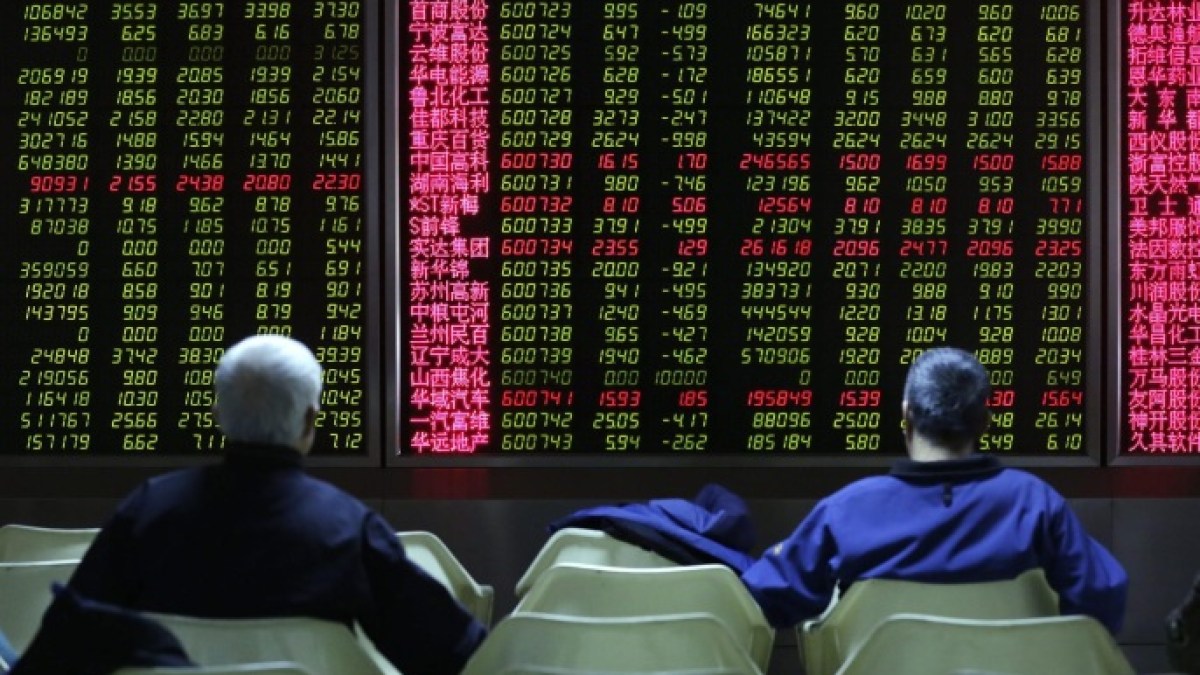More than a trillion dollars of the market value of stock exchanges in China and Hong Kong evaporated this year (European)
The Economist said foreign investors who were once fascinated by Chinese stocks are now increasingly fleeing, with net sales reaching $2 billion last January alone.
In light of a turbulent economic landscape, the Chinese stock market is facing a crisis that raises concerns for domestic and foreign investors alike. The Economist newspaper quoted Bloomberg reports that the dismissal of the head of the Chinese Securities Regulatory Commission, Ye Huiman, reflects the seriousness of the situation, with continued instability in the market.
This development comes after the evaporation of more than $6 trillion of the market value of stock exchanges in China and Hong Kong over the past three years
,
with the Shanghai Composite Index reaching its lowest level in 5 years on February 5th
.
Huiman's dismissal comes as a step in a long line of dismissals of regulatory officials in China after periods of falling stock prices, after his predecessor, Liu Xiu, was dismissed in 2019 and was later investigated on corruption charges, while Xiao Gang, the former head of the commission, was dealt with. Chinese stocks and exchanges, as a scapegoat for the market collapse in 2015, according to the description of the Economist.
Meanwhile, press reports highlight a worrying trend in which the Chinese government, especially President Xi Jinping's inner circle, is intensifying its efforts to suppress negative views on the country's economic prospects.
The Ministry of State Security issued warnings against publishing pessimistic narratives, indicating a crackdown on dissenting opinions. Citigroup's precautionary measures and the revival of controversial "Article 23" in Hong Kong underscore the government's efforts to control the flow of information.
According to the agency, these developments pose major challenges to economists, private bankers, and foreign news companies operating in China.
Deflation puts pressure on Chinese leadership
The newspaper continues that the current decline in the stock market is intertwined with the bleak economic outlook in China, and this is primarily due - according to the newspaper - to the faltering state in which the real estate market is experiencing.
With prices and sales falling for more than a year, policymakers have struggled to prevent a correction, which is adding to the economic challenges.
Current stock market decline intertwines with China's bleak economic outlook (Associated Press)
Beijing faces multiple concerns arising from the crisis, as more than 200 million Chinese citizens own shares, making officials vulnerable to public blame for market turmoil. While social media platforms have become a way to express dissatisfaction, some posts even speculate about possible threats such as bombs or poisons being searched for on the Shanghai Stock Exchange.
Foreign investors are declining
The newspaper says that regulatory statements issued since late January, including the commitment of “Central Huijin”, an investment arm owned by the Chinese government, to buy stocks in order to stabilize the market, have left foreign fund managers feeling uneasy. The campaign against short selling and the possible implementation of measures against hedging instruments such as short selling have increased concerns among foreign investors.
This regulatory uncertainty has led to a significant withdrawal of foreign investors from Chinese markets, with fears of possible detention of employees and accusations of financial crimes.
Foreign and domestic investors are eagerly awaiting the establishment of a potential government rescue fund, which rumors indicate is worth about 2 trillion yuan ($280 billion), equivalent to about 3% of the market capitalization of China's stock market.
Long-term repairs
As China grapples with the current crisis, long-term reforms are being considered to reshape the dynamics of its stock markets. A key aspect according to The Economist is shifting the focus from raising capital to preserving investors' wealth, with the aim of creating a more "investor-oriented" market. This entails fewer initial public offerings (IPOs) and more liquidity directed toward secondary trading.
Foreign investors who were fascinated by Chinese stocks are fleeing after net sales amounted to $2 billion in January alone (Shutterstock)
The government's plan also includes raising the market value of state-owned companies, whose value is currently estimated at half the level of non-governmental companies. The proposed reforms seek to create a "valuation system with Chinese characteristics" to boost share prices of state-owned enterprises by educating investors about their broader social roles.
Policymakers also aim to make state-owned enterprises more attractive to investors by introducing metrics such as return on equity, regular dividends, and share buybacks.
The newspaper says that although these reforms may pose a challenge, given the current economic downturn, the government is considering them in conjunction with broader plans to attract foreign investment and make Chinese stock markets more competitive on the global stage.
However - in the context of the severity of the current crisis - a permanent transformation in markets is likely to require comprehensive and ambitious measures, the newspaper says.
Source: Economist + Forbes

